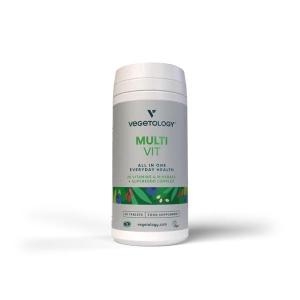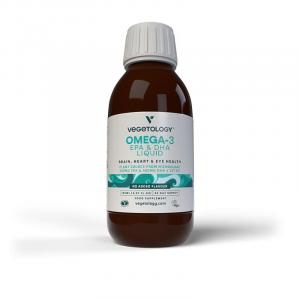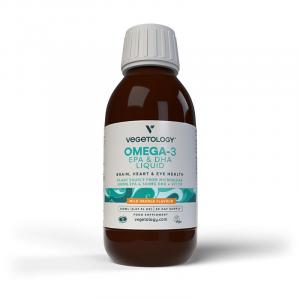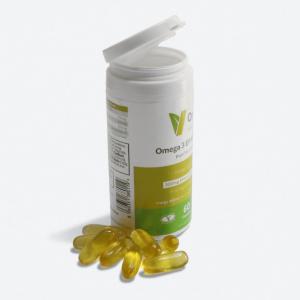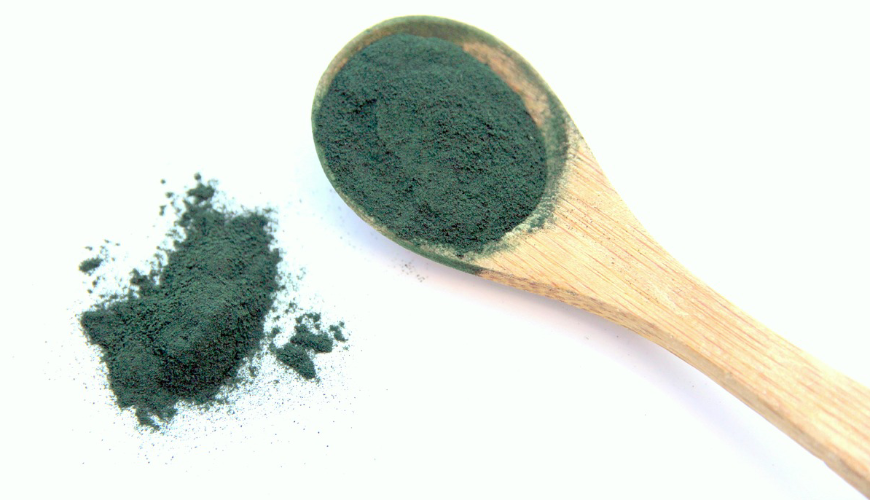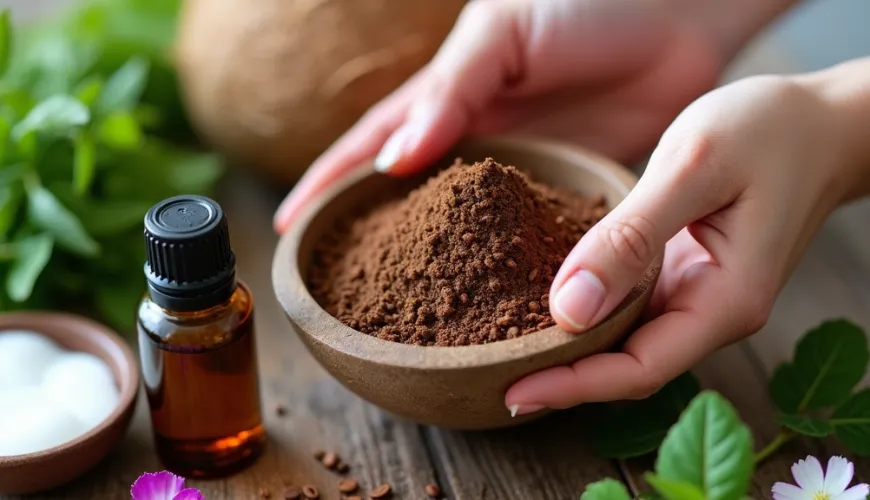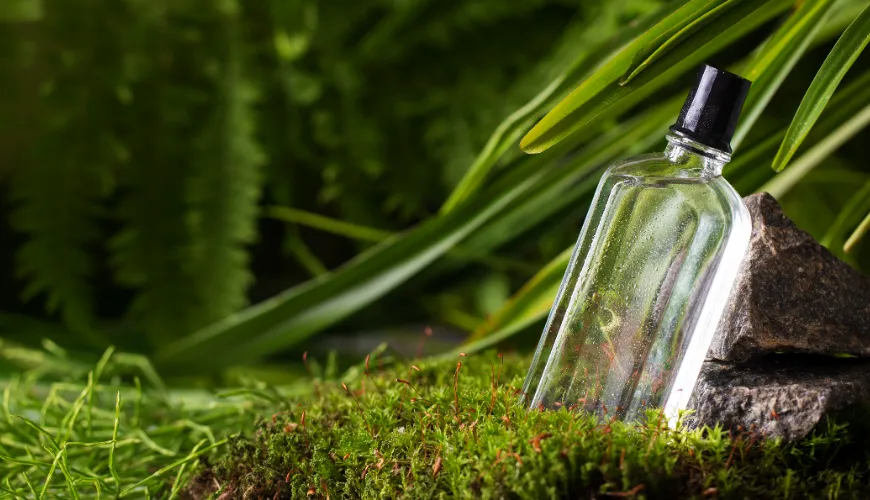
How to Get Rid of Scalp Sores Using Natural Methods
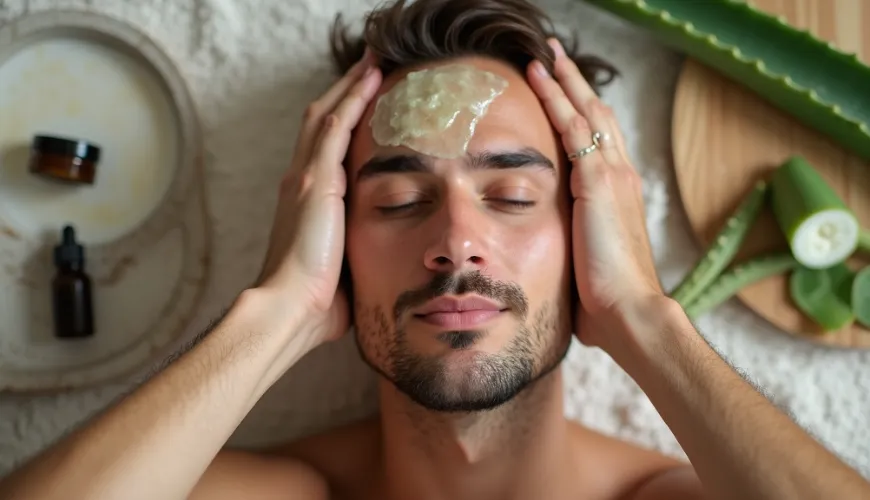
What Causes Sores on the Scalp and How to Tackle Them
At first glance, scalp issues may not seem like common topics openly discussed. Few people admit to having sores, scabs, or even pus-filled wounds on their heads. Yet, this is a relatively common problem affecting people across all ages and lifestyles. Painful sores on the scalp are not just a cosmetic issue – they often signal deeper problems with the skin, immune system, or lifestyle habits. What are the causes of scabs and sores on the scalp, and what steps can lead to their removal?
From Irritation to Inflammation – Causes of Sores on the Scalp
Sores on the scalp, whether they are red bumps, oozing lesions, or dried scabs, can have various causes. Most commonly, they result from skin irritation, infection, or chronic dermatological conditions. Let's take a closer look at some common culprits.
One of the main triggers is seborrheic dermatitis, an inflammatory skin condition characterized by redness, itching, and flaking. In some people, this results in painful scabs that crack when scratched and may start to ooze.
Psoriasis can present similarly, an autoimmune disease causing thick, itchy plaques. Psoriasis sufferers often experience sores on the scalp, which are painful, crack, and leave behind dried scabs.
We must also consider folliculitis – inflammation of hair follicles, often caused by bacterial infections (most commonly staphylococcus). This results in small, red, often pus-filled sores on the scalp that hurt to the touch and can spread to surrounding areas.
Allergies to shampoos, styling products, or hair dyes can also play a role in some people. In cases of hypersensitivity, the skin may react with redness, pimples, or surface inflammation, easily turning into scabs.
Lastly, stress can also be a culprit. Long-term stress weakens the immune system and can lead to skin problems manifesting as sores on the scalp. Additionally, people tend to scratch more during stress, often unconsciously, which exacerbates the issue.
When Small Lesions Turn into a Chronic Problem
Sometimes the problem begins subtly – an itchy scalp, a small pimple that gets accidentally scratched. This creates a small wound that becomes inflamed. If the situation repeats or treatment is neglected, chronic sores can develop on the skin, taking weeks to heal and leaving scabs.
In real life, this was the experience of thirty-year-old Michaela, who initially thought she only had a dry scalp. She started using moisturizing shampoos, but the situation worsened. After a few weeks, she had several painful, oozing spots on the top of her head. A dermatologist eventually diagnosed her with seborrheic dermatitis complicated by bacterial inflammation. A combination of medicinal shampoos, dietary changes, and stress reduction helped.
This story highlights the importance of timely intervention. Often, the longer the problem is ignored, the harder it is to return to healthy skin.
How to Get Rid of Scabs and Sores on the Scalp Naturally
As many people seek gentle and natural solutions, interest in alternative approaches is rising. However, what's effective for one person may not work for another. Nevertheless, some generally recommended methods exist.
The most important step is soothing the skin. Shampoos containing tea tree oil, with natural antibacterial and anti-inflammatory properties, are recommended. Aloe vera is also effective, hydrating the skin and accelerating healing. It's advisable to avoid products containing sulfates, parabens, and artificial fragrances, as these often cause irritation.
The next step is regular scalp hygiene without excessive washing. Paradoxically, frequent scrubbing can worsen the condition – disrupting the skin's natural protective layer and increasing susceptibility to infections. Ideally, wash your hair every other day or as needed, gently massaging the shampoo with your fingertips and rinsing thoroughly.
Supporting the immune system and maintaining a healthy lifestyle are also crucial. Adequate levels of vitamin D, omega-3 fatty acids, zinc, and healthy fats contribute to strengthening the skin barrier. Frequent pus-filled sores on the scalp may indicate internal imbalance – such as yeast overgrowth in the body, poor liver function, or prolonged immune system stress.
Try our natural products
When to See a Doctor and What to Watch Out For
Although many natural remedies provide relief, there are situations where visiting a dermatologist is necessary. If sores spread, are highly painful, ooze, or release pus, it is likely an infection requiring antibiotic treatment. Similarly, if scabs do not heal after several weeks, it could indicate signs of an autoimmune skin condition.
A doctor may recommend skin swabs to identify the infection's source or prescribe medication – from topical ointments to corticosteroids or antifungals. In some cases, blood tests may be appropriate, such as checking hormonal balance or thyroid function.
Chronic issues with scalp sores can also have psychological effects – people may feel embarrassed, avoid wearing light clothing due to flaking, and shy away from touch. Therefore, it's crucial not to dismiss the situation.
Prevention as the Best Cure
Once the scalp stabilizes and scabs disappear, prevention becomes key. Maintaining a simple but consistent routine is worthwhile: using gentle products, ensuring quality sleep, reducing stress, and eating a balanced diet. Regular scalp massages can also help, stimulating blood circulation and promoting cell regeneration.
In addition to external care, the body's internal balance is crucial. As the well-known physician Paracelsus said: "Disease does not originate from the outside, but from internal imbalance." Sores on the scalp may be a warning that it's time to slow down, adjust habits, and listen more closely to the body.
Although it may seem like a minor issue, painful sores on the scalp can signal that something in our body – or life – needs attention. And this attention, along with patience and care, is the best key to healthy skin and overall well-being.
